

Marvel Comics Presents ran for 175 issues from 1988 until 1995. Each issue included four eight-page stories with typically two or three on-going features (and no ads). It spotlighted some of the leading creators of mainstream comics over a period of precipitous economic growth and even more rapid decline. Reading through it is an opportunity to revisit any number of weird aspects of 90s superhero comics. This blog is a primitive, oddly regimented, manifestly scattershot crawl through an often disappointing but occasionally splendid comic. All image copyrights are Marvel's. Issue credits linked below. Updated on Wednesdays.
Marvel Comics Presents #14: Early March 1989(12.25.19)
Credits: grandcomicsdatabase
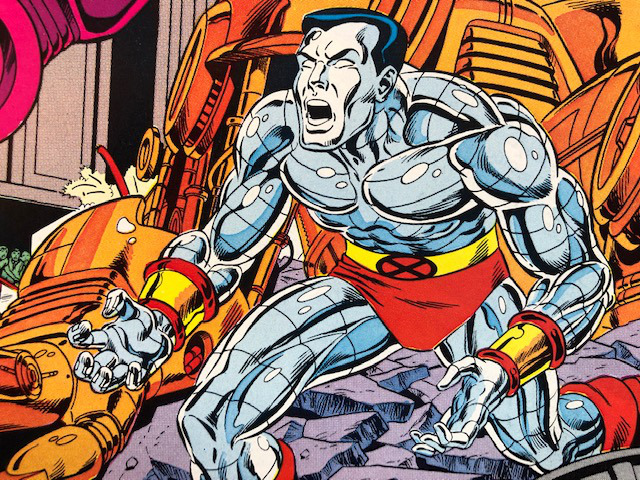
Javier Saltares with Bob McLeod on a Colossus that falls wide of the mark. The metallic surfaces are oddly mishandled here along with some strange, seemingly badly rushed, color choices. The trend of cover art failing to track story continues. The back cover is even less successful marred by Black Panther wielding a Bowie knife and Speedball (apparently) impersonating a kitty.
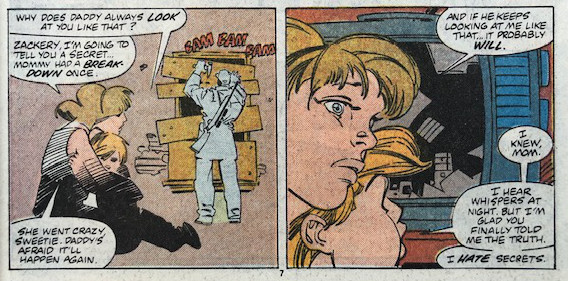
A. Colossus, "God's Country" [5/8]
Oddly, this installment has the feature titled as "American Pie," which seems neither appreciably better or worse than "God's Country." The action divides here with the reversal of a member of the Cold Warriors and Colossus subsequently heading off to track down Alexander--the character introduced and immediately dropped in the second installment.
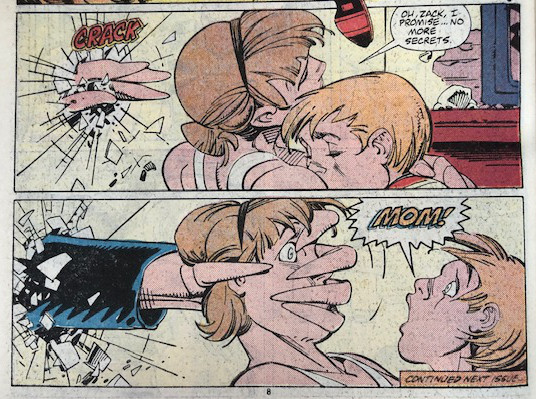
Leonardi nails the final page with a (literally) gripping action shot--namely, a hand bursting through a wall of the homestead--but Nocenti's willingness to eschew any remotely naturalistic dialogue makes the emotional pivot--the character, Number Seven, relaying her plight--more expository than engaging. Even so, Leonardi offsets the leaden dialogue through heavily cartooned eyes that can't help but pump a measure of sympathy out of her recounting of events.
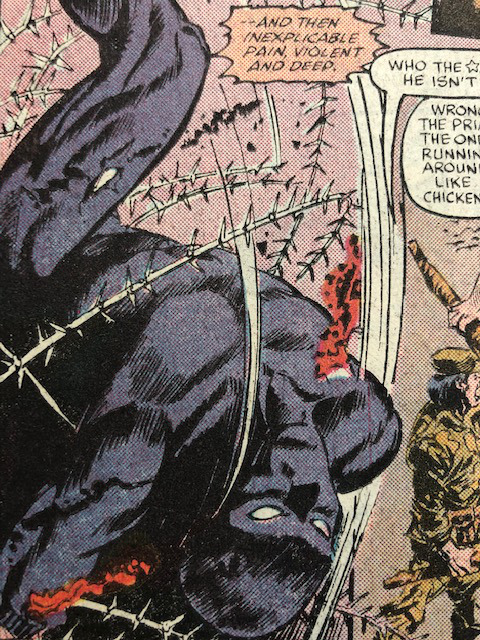
B. Black Panther, "Panther's Quest" [2/25]
The McGregor-Colan pairing sustains a fair degree of tension despite the bulk of this installment consisting of a whispered conversation between T'Challa and his informant. (The dialogue is, of course, dwarfed by reams of McGregor narration.) The interweaving of the sad fate of the informant's dog makes for some appreciably cinematic staging and storytelling.
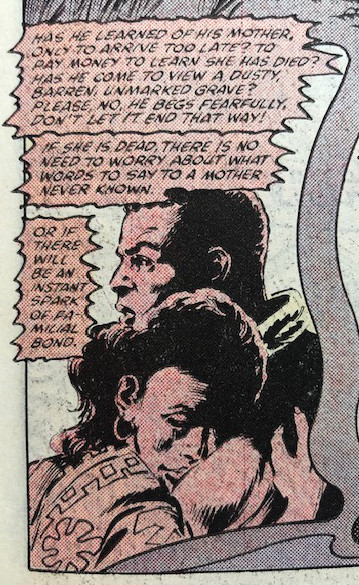
Throughout, Colan keeps the environs steeped in shadow, exploiting his a knack for weaving together shape and motion lines to capture the force of movements in T'Challa's subsequent fight with mercenaries. The continuing (and damn serious) complaint is that the lettering is jarring and distracting, especially as the serrated edges of the narrative captions fill several pages. It continues to be a bad look.
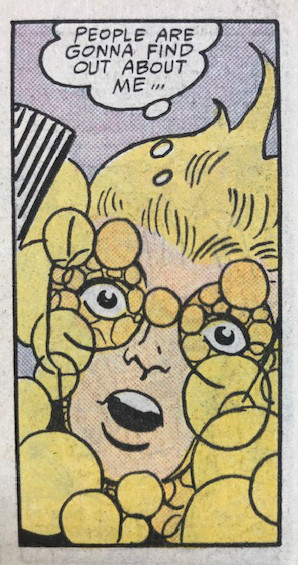
C. Speedball, "The Feathered Felon"
Our third Ditko feature picks up with Speedball right around the time his solo series was facing cancellation. The pencils here seem looser even than in the series, but there's a persistent charm to this later Ditko which is deepened by some vividly clear panels and a firmly rectilinear layout.
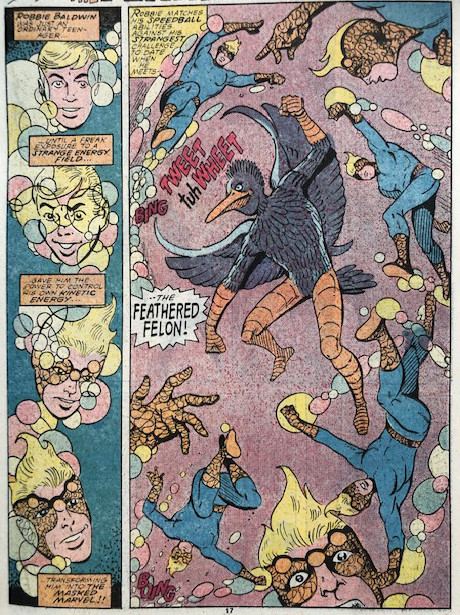
The highlight, however, is the wild-eyed playfulness of the ostensible villain--the Feathered Felon--that seems strikingly atypical for Ditko's hardline moralizing about crime.The Feathered Felon squawks amusingly nonsensical queries at victims while flying about like a big ol' goofball.
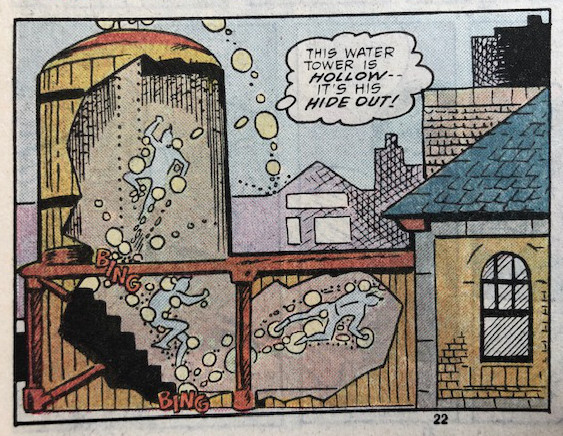
Some of the lines--perhaps due to Jo Duffy who gets a script credit here--land with fair comedic effect and the conclusion--a question-mark feather landing on Robbie's shoulder coupled with a question mark panel--plays as something near to absurdist superhero comedy.
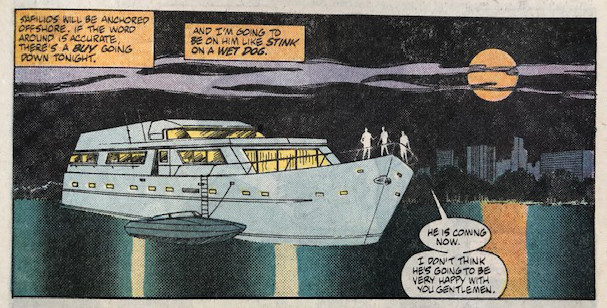
D. Nomad, "Angel in the Snow"
Miami Vice comes to MCP with Nomad as Crockett. Super-early Fabian Nicieza leans into bad crime narration and exceptionally stilted Latin drug lord dialogue. (Your opening narration from Nomad: "Miami at night. It's as hot as a fat lady's armpit, but my heart feels colder than guilt." Woof.) The short story arc is direct enough: Nomad assaults a kingpin's yacht after the murder of a sex worker. There's no resolution, though--he's interrupted by the D.E.A. and there's some opaque allusion to a broader law enforcement conspiracy. 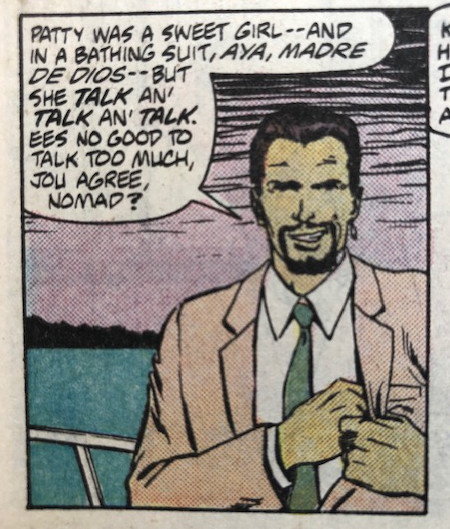
Larry Alexander offers a pleasant enough, Paul Smith-style realism with some clean action set-pieces, but there's a Morisi flavored stillness to the proceedings. The strongest touch here is probably Ripley Sue Thornhill's colors, which nicely riff on a Miami Vice with orange pastels over a black ocean setting.
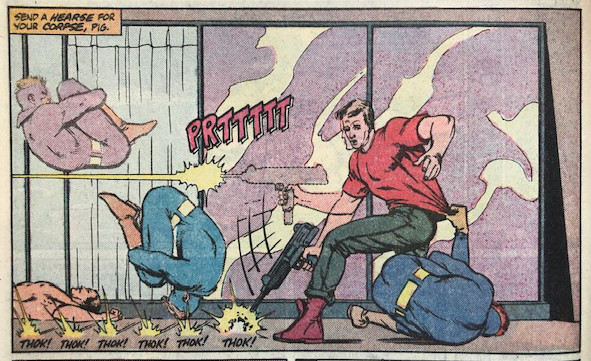
Power Rankings: Black Panther (B), Speedball (B), Colossus (B-), Nomad (C+)